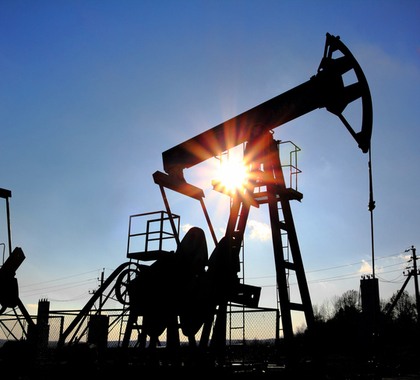Pennsylvania Commonwealth Court Judge P. Kevin Brobson delivered a partial victory to a group of shale-gas drillers in Pennsylvania who sued to block implementation of new state rules governing wells developed through hydraulic fracturing, commonly called “fracking.”
On November 8, 2016, Brobson placed a temporary stay on some new rules imposed on fracking operations in the Marcellus Shale until courts consider the full merits of the case.
The stay affected some of the new rules developed by the Pennsylvania Department of Environmental Protection (DEP) and signed by Gov. Tom Wolf (D) that went into effect on October 10. The rules would force drillers to consider the impact of their operations on species not protected as threatened or endangered under the federal Endangered Species Act. Other rules would require operators to identify and plug any nearby abandoned wells and meet stricter standards governing freshwater storage ponds.
The Marcellus Shale Coalition (MSC), an industry group representing drillers that use fracking to extract natural gas, sued to delay implementation of the new regulations until its appeal can be decided. Brobson partially sided with the drillers.
‘Vague’ Rules
MSC does not object to the entire package of DEP regulations; it only cites a limited number of provisions it says are vague, contrary to Pennsylvania law, and do nothing to improve environmental protection.
Drillers say the mandate to plug nearby abandoned wells would require them to obtain access to property over which they have no control, and it imposes liability on drillers for wells they do not own and did not drill or operate. In addition, they say the storage pond regulations are not authorized under state law, and they note conventional oil and gas wells are not covered by the rules, meaning fracking operations are being treated differently without apparent justification.
“These shortcomings are immediately harmful to our industry because they affect our ability to conduct business and remain competitive,” MSC President David J. Spiegelmyer told Philly.com on October 13.
“Pennsylvania’s oil and gas industry is governed by some of the nation’s most stringent laws and regulations, and our members continue to follow all federal and Pennsylvania environmental statutes and regulations,” Spiegelmyer said in a statement. “Even with a record number of on-site inspections of unconventional oil and gas well sites, DEP’s own data illustrate that environmental compliance in the oil and gas industry has never been better.
“Certain provisions conflict with DEP’s legal authority granted by Pennsylvania’s General Assembly while other provisions are vague,” Spiegelmyer said.
Judge Finds Objections Persuasive
Brobson’s ruling indicates he found at least some of MSC’s arguments persuasive.
While Brobson allowed new rules to go forward requiring shale gas operators to survey for nearby abandoned and active wells that could possibly be affected by new fracking operations, he blocked requirements forcing companies to plug and/or remediate damage to wells owned by others or that have no known owners.
In addition, as reported by the Pittsburgh Post-Gazette, Brobson enjoined rules requiring “companies to consider the impact of their operations on nearby playgrounds, common areas of a school’s property,” and species not officially listed as threatened or endangered.
Brobson also stayed rules that would require companies to close and rebuild existing holding ponds to stricter standards.
Brobson found the provisions of the new fracking rules he blocked likely exceeded DEP’s authority, while the costs of complying with the provisions until their legal standing was finally determined would cause drillers irreparable harm if the rules are later determined to be illegal.
Renaissance at Risk
In less than a decade, fracking transformed Pennsylvania into the nation’s second-largest producer of natural gas, behind only Texas. The resulting glut of gas forced prices down, and the number of drilling rigs operating in the state decreased from 114 at the peak in October 2011 to just 13 in June 2016. Since June, the industry has experienced a modest recovery, with 24 wells operating statewide in early October.
Isaac Orr, a research fellow at The Heartland Institute, publisher of Environment & Climate News, says the new DEP regulations could further slow the nation’s economic recovery.
“Industry officials have said that these regulations will add $2 million to the cost of completing a well in Pennsylvania, an increase of 30 percent over current well-drilling costs,” Orr said. “This will have a chilling effect on consumers and energy-intensive industries like manufacturing and steel production.
“Marcellus Shale is the largest natural gas-producing field in the world,” said Orr. “At a time when the United States is experiencing the beginnings of a renaissance in manufacturing, it makes no sense to burden energy producers with regulations that will bring little environmental benefit.”
New York Example
Craig Rucker, executive director of the Committee for a Constructive Tomorrow, says Pennsylvania’s regulators should not kill the state’s golden goose.
“In my home state of New York, fracking is banned,” said Rucker. “Residents of the Southern Tier have the riches of the Marcellus Shale beneath their feet but derive no benefit from them.
“Landowners have looked with envy on their neighbors to the south in Pennsylvania, where the natural-gas boom has given people hope for the future,” Rucker said. “Pennsylvania regulators should not kill, or even wound, the goose that continues to lay golden eggs.”
Bonner R. Cohen, Ph.D. ([email protected]) is a senior fellow at the National Center for Public Policy Research.





